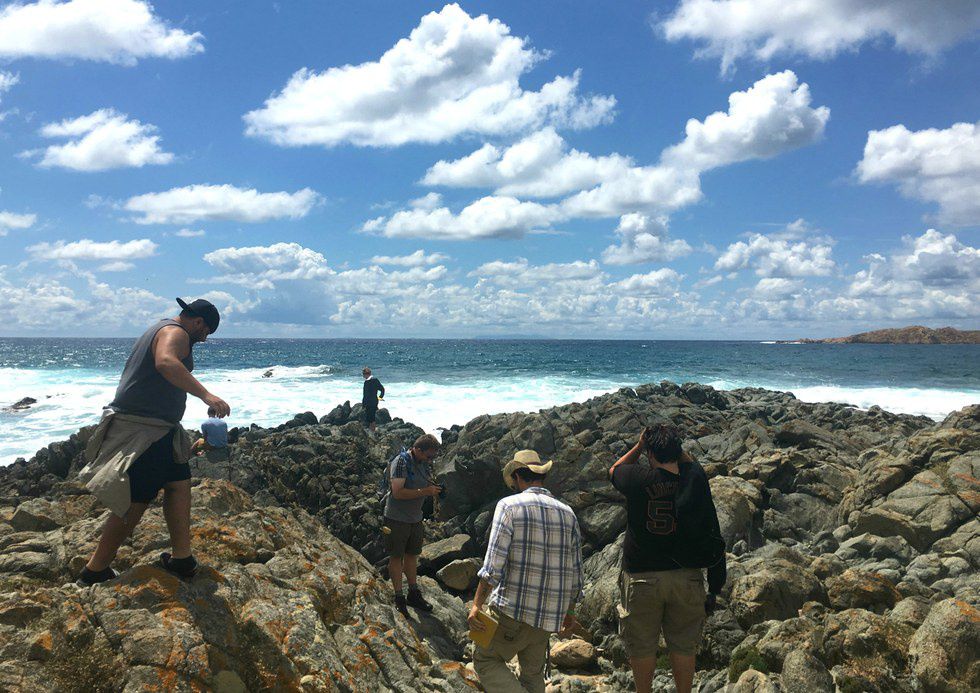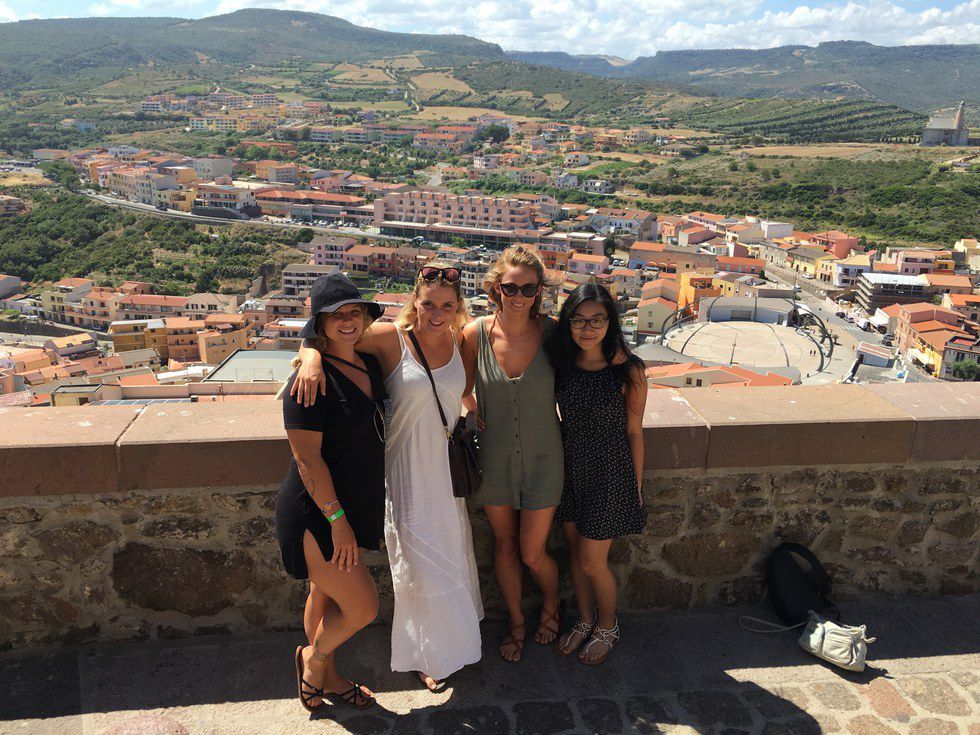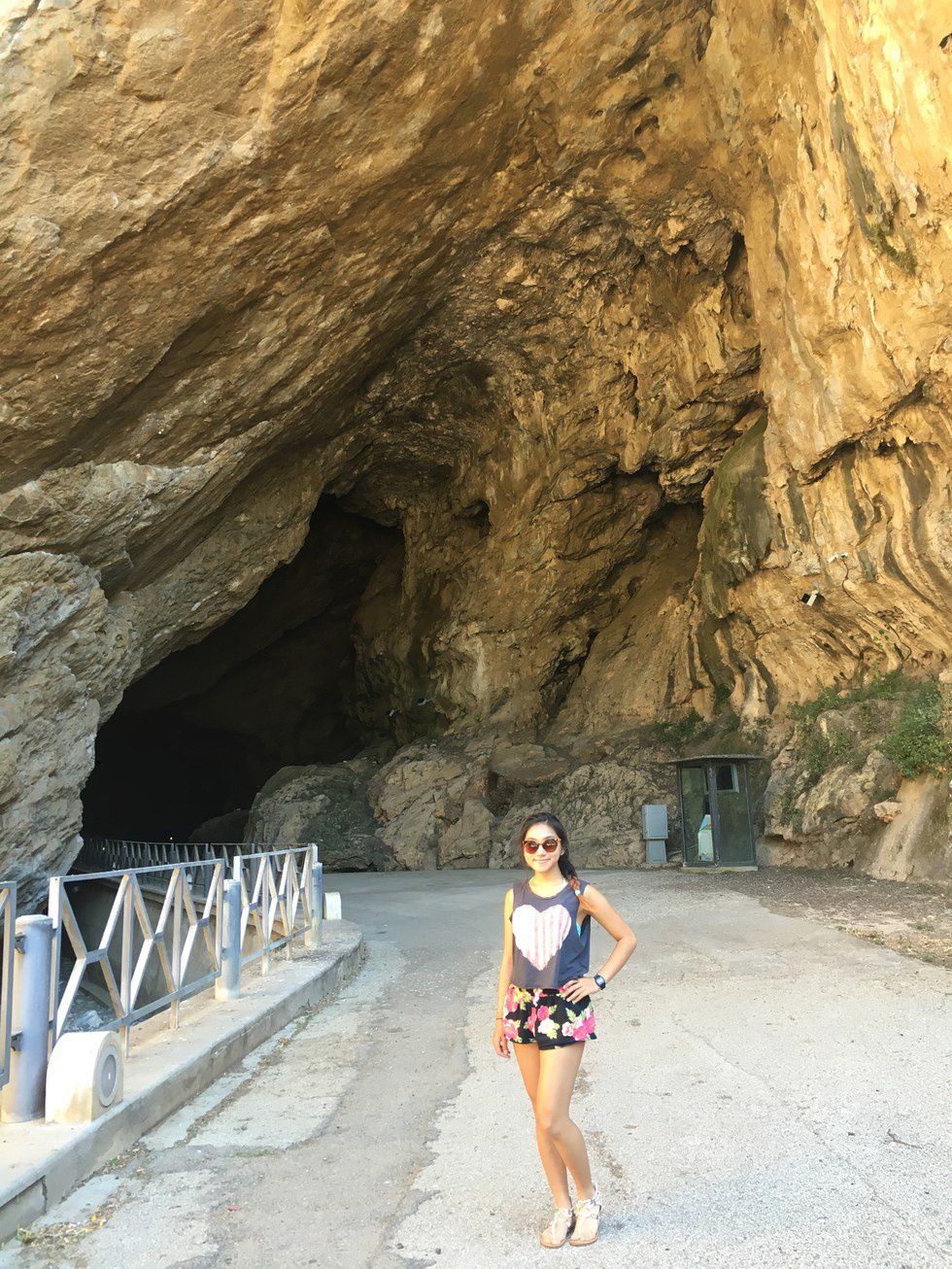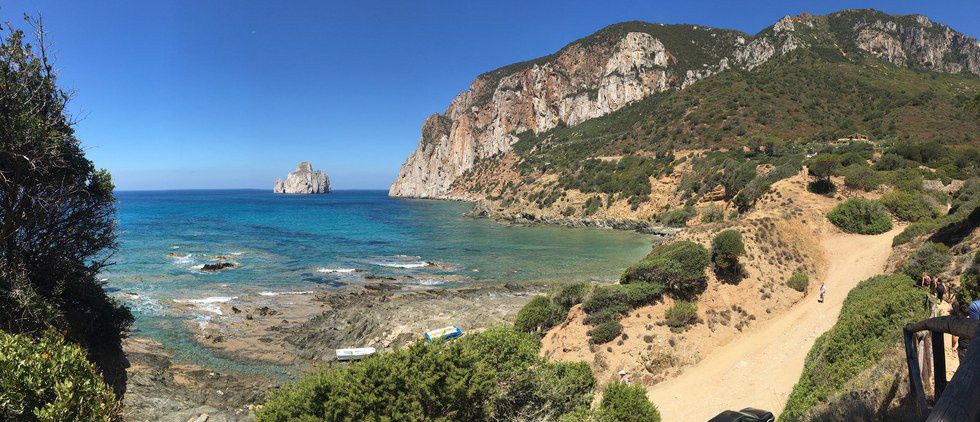In a general pattern of my life, my travels in Italy this summer involved rocks (and lots of rock puns). It also made absolutely no sense to anyone outside of geologists. Why did you spend most of your time walking around in hiking boots and scribbling on maps? Did you confuse the locals? Did you learn a lot? Was the scenery beautiful? (The answer is yes to the last three.) For anyone who was actually curious rather than just asking out of politeness about what I did abroad, I hope to shed some light on the wonderful, mysterious world of geology and those of us who endeavor to study it.
First of all, the reason I spent a month on the Italian island of Sardinia is I was doing field camp, a required course for Rice students who wish to earn a B.S. in earth science. What on earth is field camp? The short answer, aka what I told baffled customs officers is that it’s a class where we study rocks in a particular area. The long answer is that it’s “an intensive outdoor course that applies classroom and laboratory training to solving geological problems in the field.” The goal of field camp is analogous to that of hospital internships for pre-med students: applying classroom learning to hands-on experience.
So what does intensive hands-on experience look like when you study how the Earth operates? Typically in field (boot) camp students are assigned projects with the goal to hike out an area, record observations, and tell a story about its geology, its history. What happened to create these mountains, these faults? Why do we see oceanic rocks on top of desert rocks? Do we see lava deposits that match up with what we know about volcanic activity in the past 30 million years? The tools geology students use to tell a story include mapping out the rock types (by hand), drawing various diagrams to illustrate data, and writing scientific reports presenting interpretations backed by observations. The “intensive” part is where these projects must be completed under a time-crunch, honing students to perform tasks with maximum efficiency and accuracy. Basically, we get schooled in how to marry science and art as a method of solving complex problems. Pretty cool, right?
If you were to picture what we looked like to locals, we were a horde of loud American students running around remote areas, holding our maps and stomping down beaches with the objective of looking at rocks instead of sunbathing like the rest of the vacationers. We also traveled by piling into three huge vans that required considerable finesse to navigate down the narrow streets of old European cities. Studying geology is a lifelong campaign to bewilder everyone everywhere you go.
Frequently Asked Questions Not About Rocks:
“Did you go to Rome? Venice?”
Unfortunately, I only saw the inside of the Rome airport and never traveled to Venice, Milan, or any of the other traditional tourist hot spots. The reason for this is field camp was located on the island of Sardinia, and ferry rides to from the mainland can take anywhere between four to 18 hours (yikes!), depending on the route. The tourism has been saved for another trip.
“Did you meet any cool people?”
Yes, as a matter of fact, I did. Our class consisted of students from universities all over the country, and they were all the bomb dot com. Being from such different backgrounds yet sharing the same interest in geology, everyone was able to contribute a unique perspective to what we learning. The instructors were so knowledgeable and chill — they were also spectacular wielders of dry humor. It was like having five Cristina Yangs leading us around Italy. I was terribly sad to part with the people I lived with, worked with, laughed with, and traipsed all over Sardinia with for four weeks.
“What did you think of the culture?”
I loved it! The attitude toward life in Italy is somewhat relaxed and geared toward enjoying the little things, something that I can definitely get on board with. There were many differences between Italian and American culture that I came to embrace and, as a result, gained deeper appreciation for both the country I was visiting and the country I was raised in. But that’s for another article.
“Did you do any non-academic stuff?”
If you must know, we did get days off between our projects where we were allowed to go to the beach (to actually enjoy the beach, looking at rocks optional), eat good food, and explore the cities we passed through. If you really must know we ate good food every day and often camped in resorts that were right on the waterfront with breathtaking views. But if a professor asks me, the official response is that my time in Italy was extremely educational.
There you have it. I spent a month in Italy laying on the beach, drinking wine, and soaking up the scenery. With a little bit of geology thrown in. It was overall just a really gneiss experience!


























